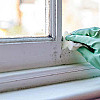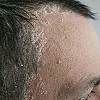Ask the doctor: What causes red wine headaches?
Ask the doctor

Q. I get headaches after drinking red wine. Why? I'm 56 years old and in excellent health.
A. Getting a headache after drinking red wine seems to be common, but no single explanation has been found. Several theories have been proposed, but none has much evidence behind it.
One theory holds that the culprit is histamine, a compound found in grape skins. Red wine contains more histamine than white wine because it's made from the whole grape (including the skin), not just the juice. Some people have a shortage of an enzyme that breaks down histamine in the small intestine. Alcohol also inhibits the enzyme, so the combination may boost histamine levels in the blood, which can dilate blood vessels and cause a headache.
Tannins, another grape-skin constituent, could be at fault. Tannins are plant chemicals that impart flavor to red wines and contain antioxidants. But they also spur the release of certain chemicals called neurotransmitters associated with pain.
Some experts think that sulfites, a preservative in wine, are to blame. But many white wines and other foods also contain sulfites.
These potential culprits vary from wine to wine, so if you don't want to give up red wine altogether, you might try different brands or grape varieties to see how they affect you. When you try a new red wine, start with less than half a drink. If it's going to give you a headache, it'll do so within 15 minutes.
Any alcoholic beverage can dilate blood vessels in the brain and cause a headache. Avoid drinking wine, beer, or liquor on an empty stomach or when you're dehydrated. Try to drink a glass of water between glasses of wine. And limit your wine intake to no more than one glass per day. But if you have two at a sitting, they should be separated by at least an hour.
Disclaimer:
As a service to our readers, Harvard Health Publishing provides access to our library of archived content. Please note the date of last review or update on all articles.
No content on this site, regardless of date, should ever be used as a substitute for direct medical advice from your doctor or other qualified clinician.















